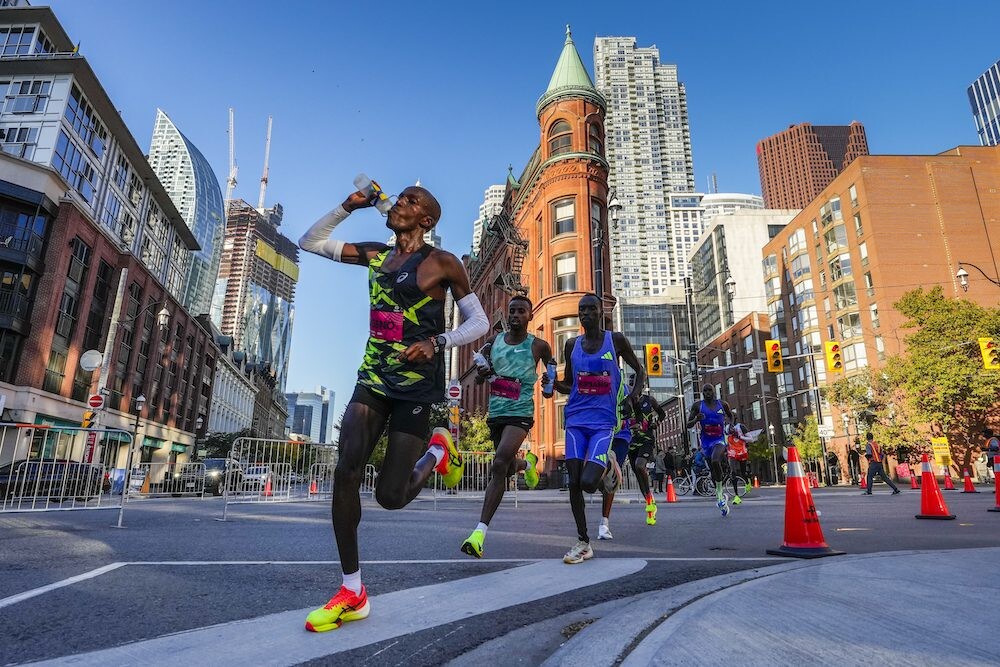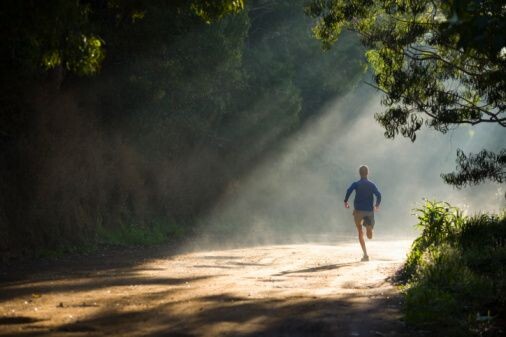Running News Daily
Running News Daily is edited by Bob Anderson. Send your news items to bob@mybestruns.com Advertising opportunities available. Train the Kenyan Way at KATA Kenya and Portugal owned and operated by Bob Anderson. Be sure to catch our movie A Long Run the movie KATA Running Camps and KATA Potato Farms - 31 now open in Kenya! https://kata.ke/
Index to Daily Posts · Sign Up For Updates · Run The World Feed
Morning people make faster marathoners, study shows
If you’re the type of person who typically jumps out of bed at the crack of dawn, thrilled to greet the new day, and who feels most productive in the morning, you may be more likely to achieve your marathon time goal than your night owl training partner, according to a new study published in the Journal of Sleep Research.
Of course, there are many factors that influence running performance. But there is less data around “circadian preferences” (i.e., whether you identify as a morning person or an evening person) and “sleep inertia” (how hard you find it to transition to being awake, after you get out of bed) as they relate to running performance.

The study was conducted among 936 participants at the 2016 London Marathon. Co-author Jesse D. Cook (a postdoctoral fellow at the University of Wisconsin-Madison and host of the Sleep Research Society Podcast) told Psypost.org marathons are good settings for this type of research, since they typically start early in the morning. (Canadian 1976 track Olympian and professor of kinesiology at the University of Calgary Penny Werthner is also one of the study’s co-authors.)
The data was surprisingly clear: people who identify as morning persons run a whopping 13.9 minutes faster, on average, than people who identify as evening persons, and the more strongly the identification, the greater the difference. Moreover, those who find it takes them more than 30 minutes to transition to being fully alert after waking also ran slower than those who felt alert more quickly, though this connection was less significant than the morning vs. evening distinction. (This correlation makes intuitive sense–if you’re having trouble waking up, you might find that running a marathon more or less immediately upon waking is quite challenging, and would result in slower race times than if you ran it later in the day, when you feel more alert.)

The study also took into account participants’ personal and sleep habits and caffeine consumption, as well as age and sex, to account for these other variables; however, it’s possible that circadian preferences and sleep inertia are also associated with other factors, such as psychological characteristics and how much people train. (Cook emphasized that the study does not show direct causation.)
Cook implied that, while trying to change your body’s circadian rhythms may be not be practical, being aware of your body clock and the possible connection between circadian rhythms and performance could help you perform better. For example, scheduling training runs around the same time as the race start will help you get used to early start times.
by Anne Francis
Login to leave a comment




